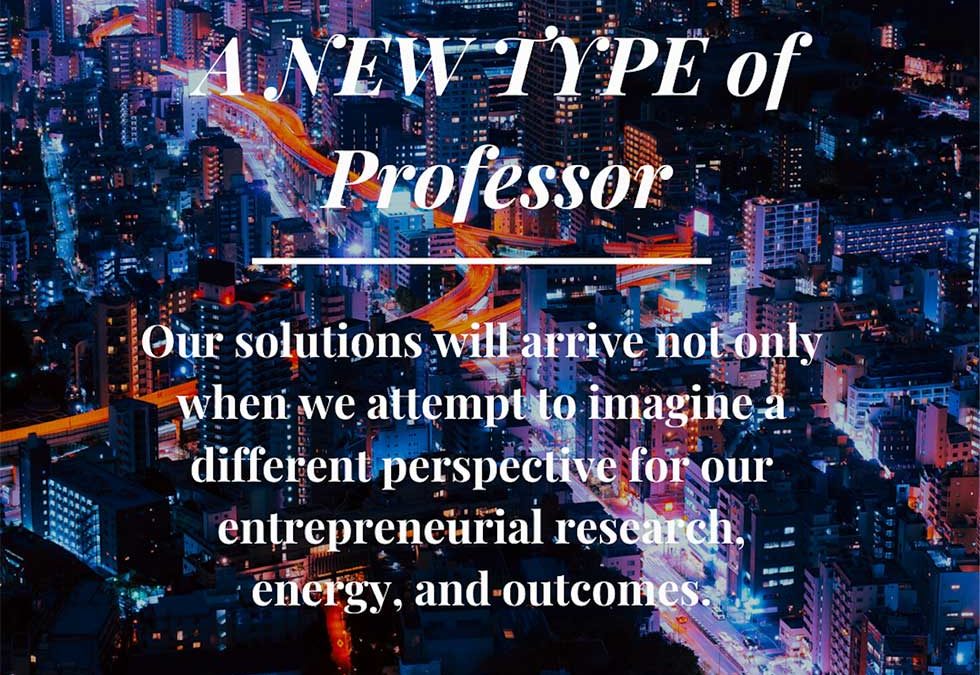
New ICSB Board of Directors
Welcome to the New ICSB Board of Directors
Monday, July 13, 2020
Welcome to the New ICSB Board of Directors
Monday, July 13, 2020
Welcoming to a New Dawn for ICSB
Almost two months ago, I presented my vision for a “New Dawn for MSMEs and Startups.” As the world begins its new normal post-COVID-19, ICSB is also beginning its new normal for a prosperous future built on the organization’s four core principles, which include research and teaching, education, and policy. As my time as ICSB’s President comes to an end. I would like to welcome you all into this New Dawn for ICSB.
Looking at this past year, it seems truly incredible at the pace of change. Together, the ICSB community has accomplished truly incredible feats. To name a few:
- We are now a community of ICSB members that are truly global.
- Our current Knowledge-Hubs (KHUBs) include UnRaf, Houston Community College, Arab Academy, Rowan University, George Washington University, Chrome, San Diego State University, Compania School, Lisa Lab, and the Institute of Public Accountants.
- We have successfully educated our first SDG Certificate Cohort, two Social Entrepreneurship Certificate Cohorts, one Where to Play Cohort, and one Navigating Market Opportunities Cohort.
- We have participated in hosting or co-hosting the California Entrepreneurship Educators Conference (1128 Registrants), the ICSB 1st Virtual Family Business Conference, MSMEs Day Celebration and Day of Action Conferences (June 25th and 27th).
- MSMEs Day Celebration and Day of Action reached over 3,948 People through ICSB’s Facebook.
- We have published over 50 webinars on ICSB TV, compiling over 9,762 views and reaching over 1,000 hours of viewed webinars.
I wanted to share these statistics to portray how truly incredible this organization is. Despite the multiple internal and external setbacks faced by ICSB this year, we have endured. We have embodied what we seek to support: the opportunity for all. It has certainly been a great pleasure of mine serving you, the ICSB community. My colleagues and this community are absolutely remarkable, and that is why it is my great pleasure to pass this capable organization over to a new board to build upon this past year’s foundations. I can not wait to watch ICSB thrive in the year to come.
As per our outgoing board meeting on July 9th, I am pleased to announce that I will continue to work with and for ICSB as the Chair of the Board of Directors. This organization’s success has become a passion of mine. As it is the community and those within it have found a place into my heart, I would like to express my true appreciation and deep gratitude to our board for allowing me the opportunity to sit as the inaugural Chair of the ICSB Board under our 2020 bylaws.
As your Board Chair, I would like to present and congratulate ICSB’s new Board of Directors:
- Winslow Sargeant, Incoming Chair of the Board
- Rita Grant, Board Member
- Vicki Stylianou, Board Member
- Jordyn Murphy, Board Member
- Jeff Alves, Board Member
- Alex DeNoble, Board Member
- Amr AbouElazm, Board Member
- Hermawan Kartajaya, Board Member
- Ricardo Alvarez, Board Member
- Charles Matthews, Board Member
I would also like to thank all our outgoing board members who I am sure will remain loyal members of ICSB.
I can think of no better or more equipped group of individuals to lead this organization towards its fullest potential. I congratulate each and every one of you and look forward to continuing to work as your Chair.
I would also like to take this opportunity to announce our new President and CEO of ICSB. Please join me in congratulating Dr. Ayman El Tarabishy as he transfers from his role as Executive Director of ICSB to President and CEO. Throughout my year working as President, Ayman has proved himself a dedicated servant to ICSB, a collaborative colleague, and a dear friend. After watching Ayman’s dedication and passion, I can think of no better person to lead us into our “New Dawn” as one strong, united ICSB.
Welcome to the new world of ICSB!
Ahmed Osman
Chairman of the ICSB Board
ICSB Board Positions:
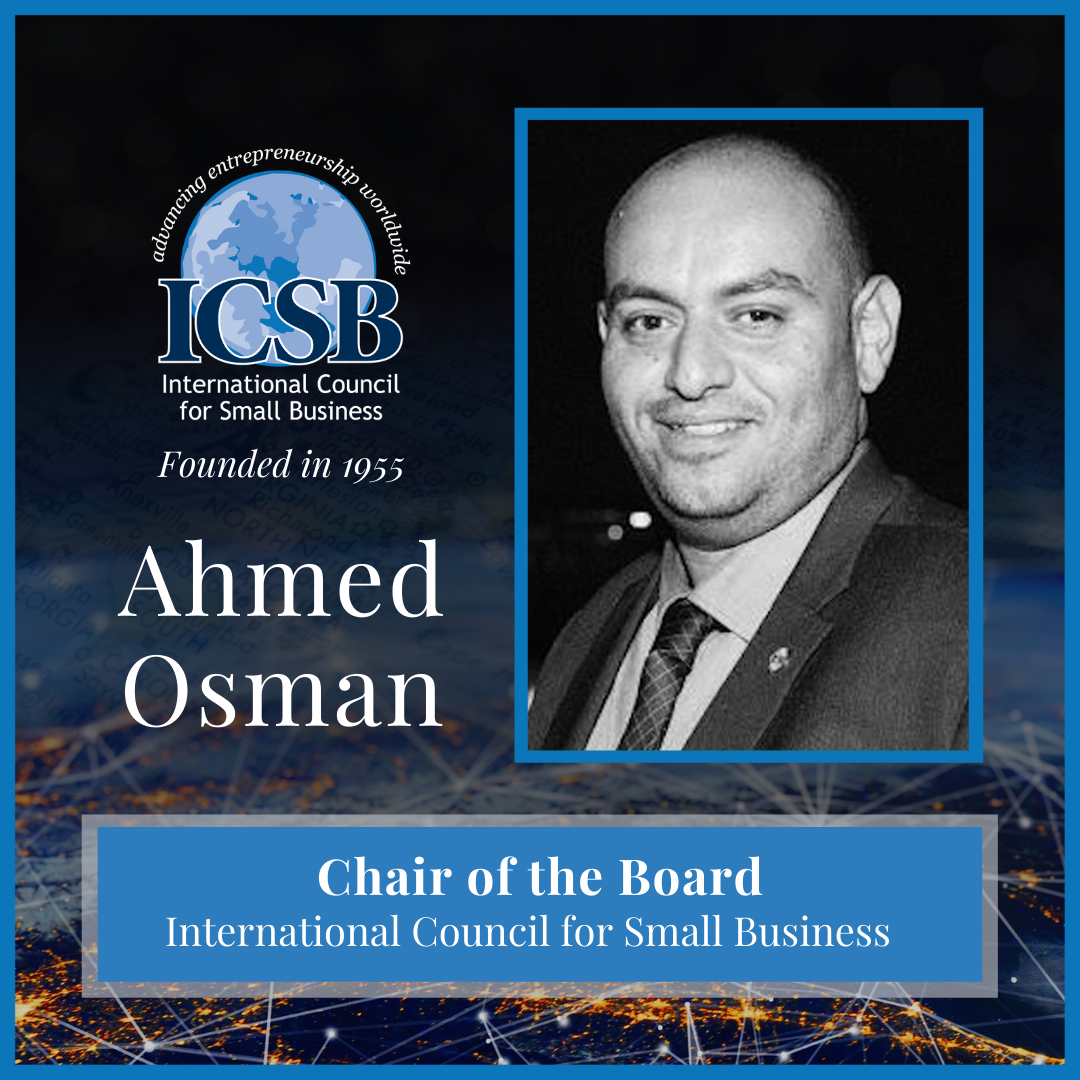

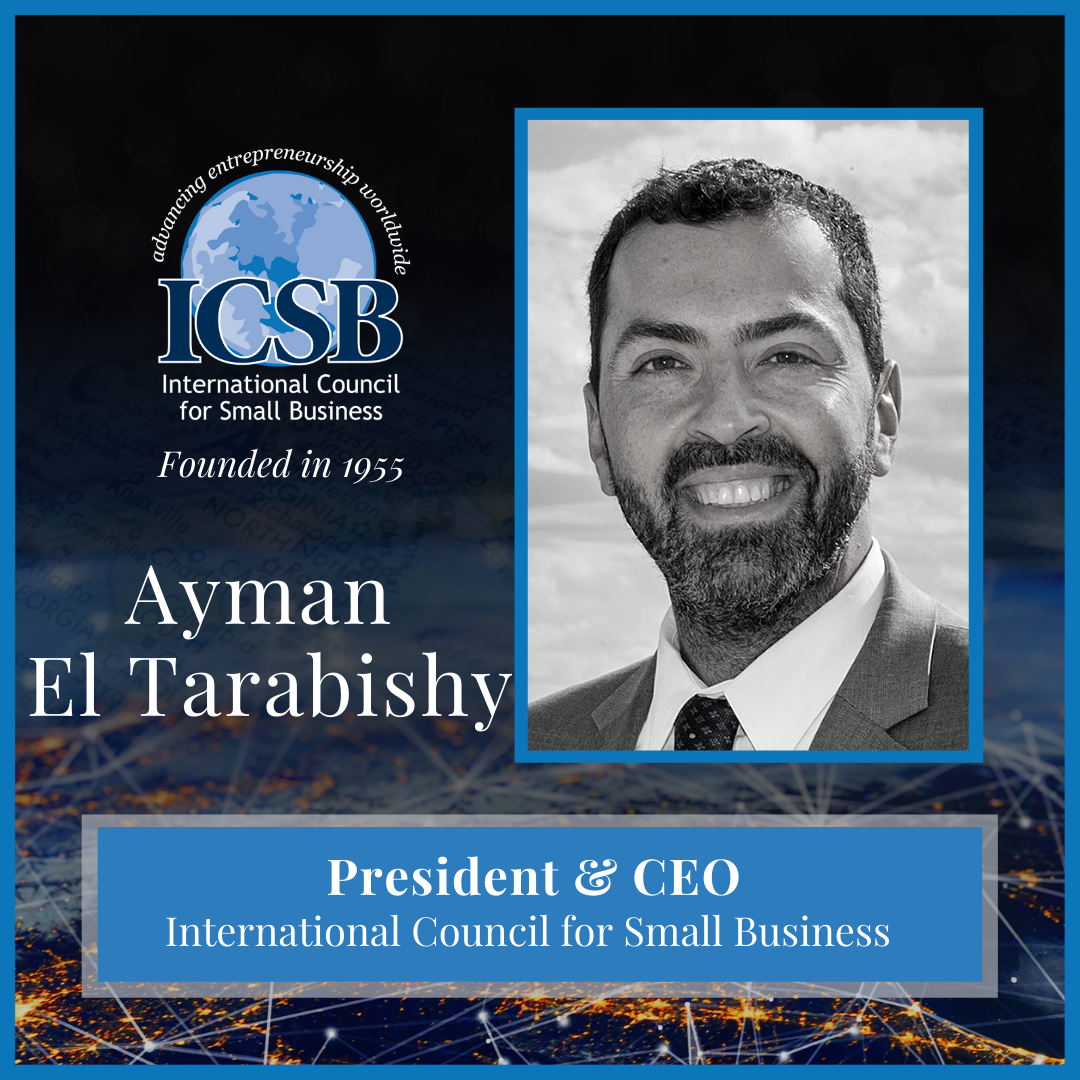
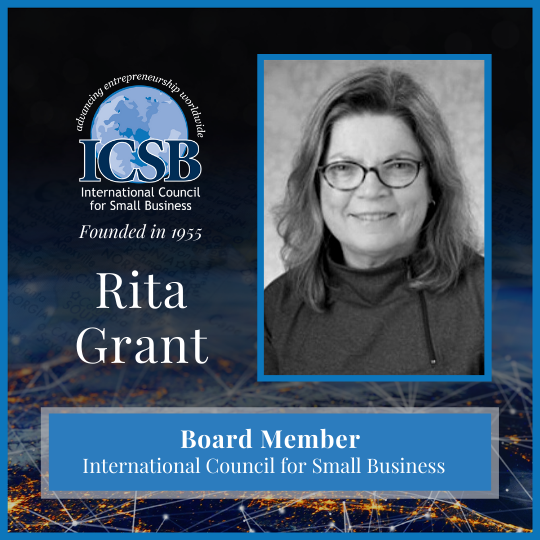

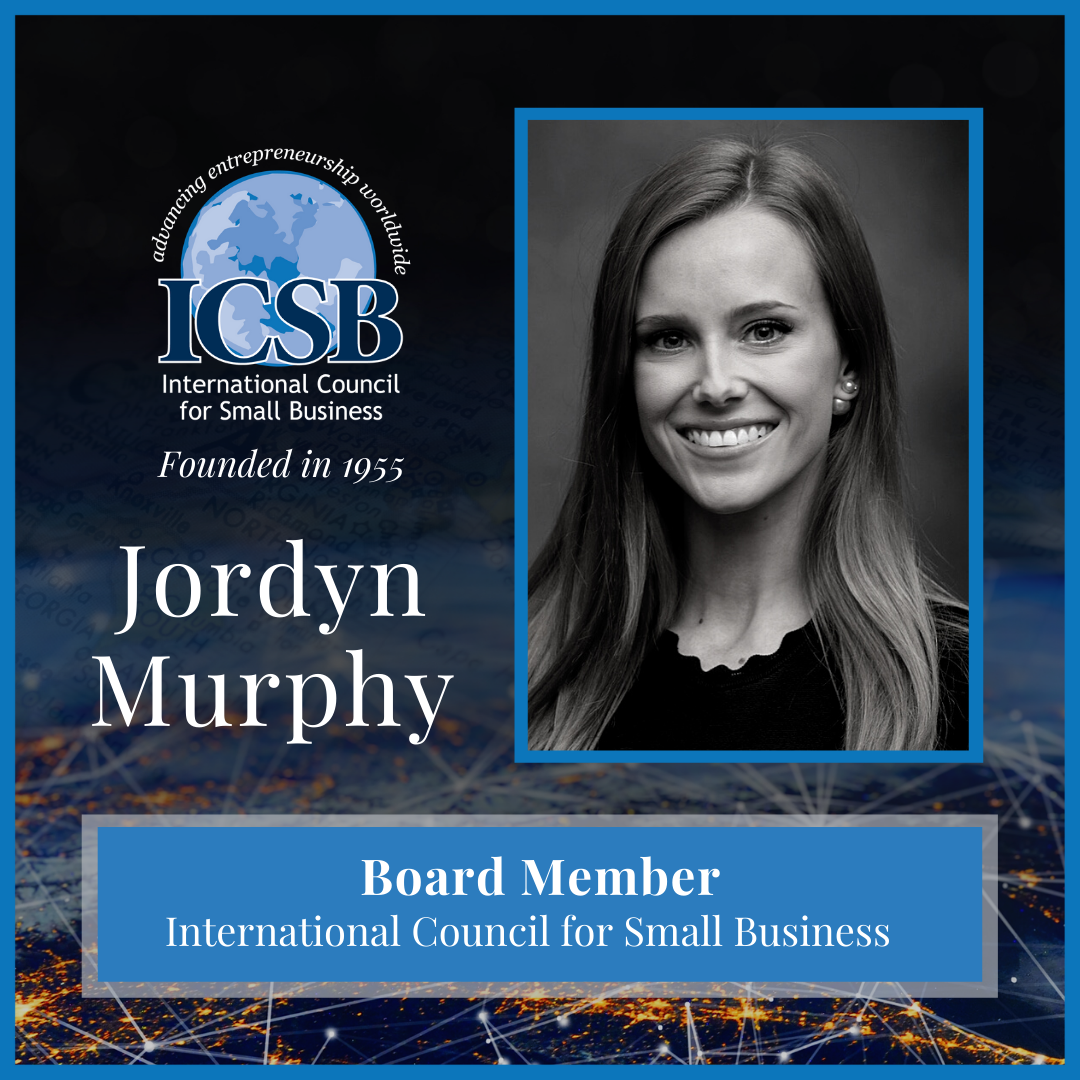




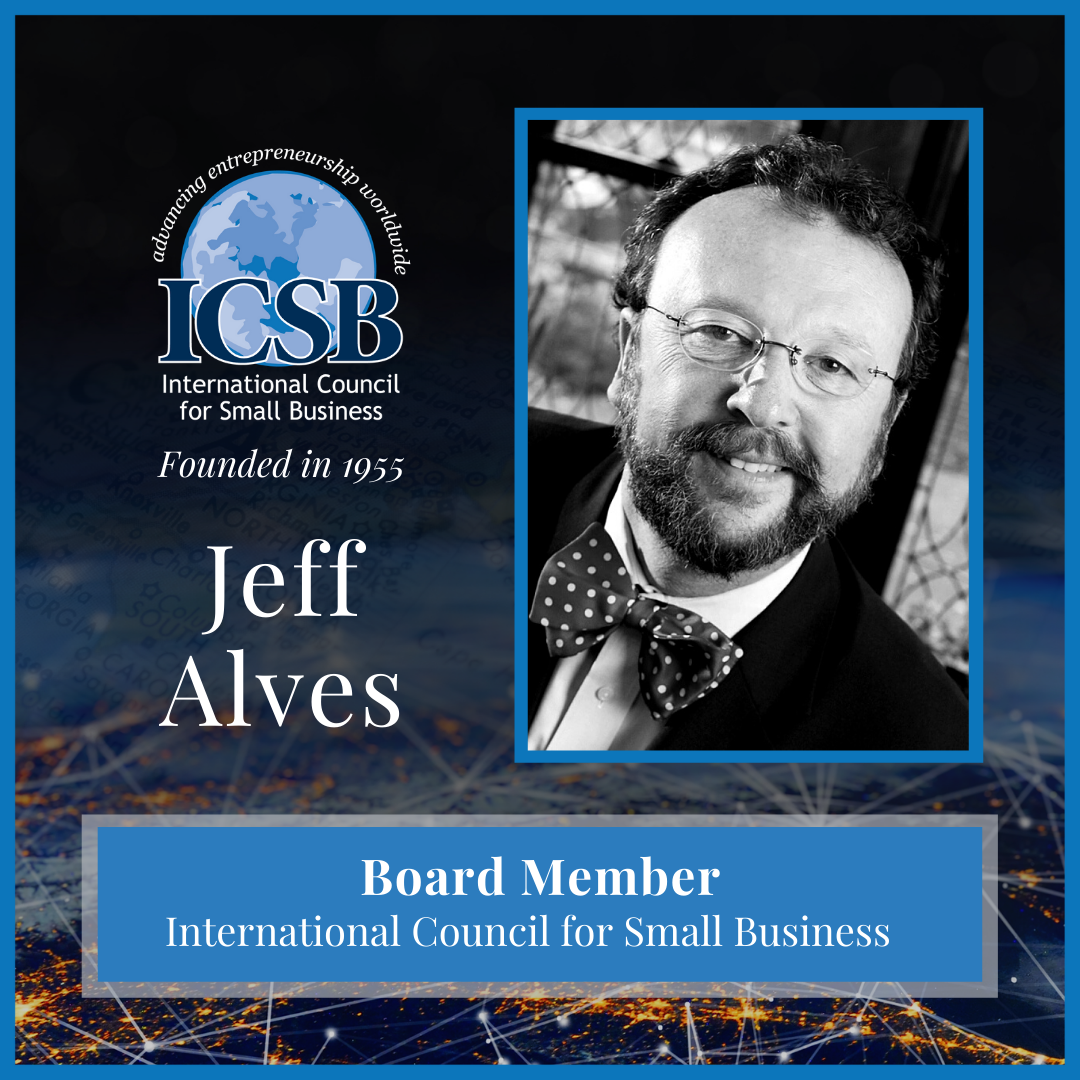
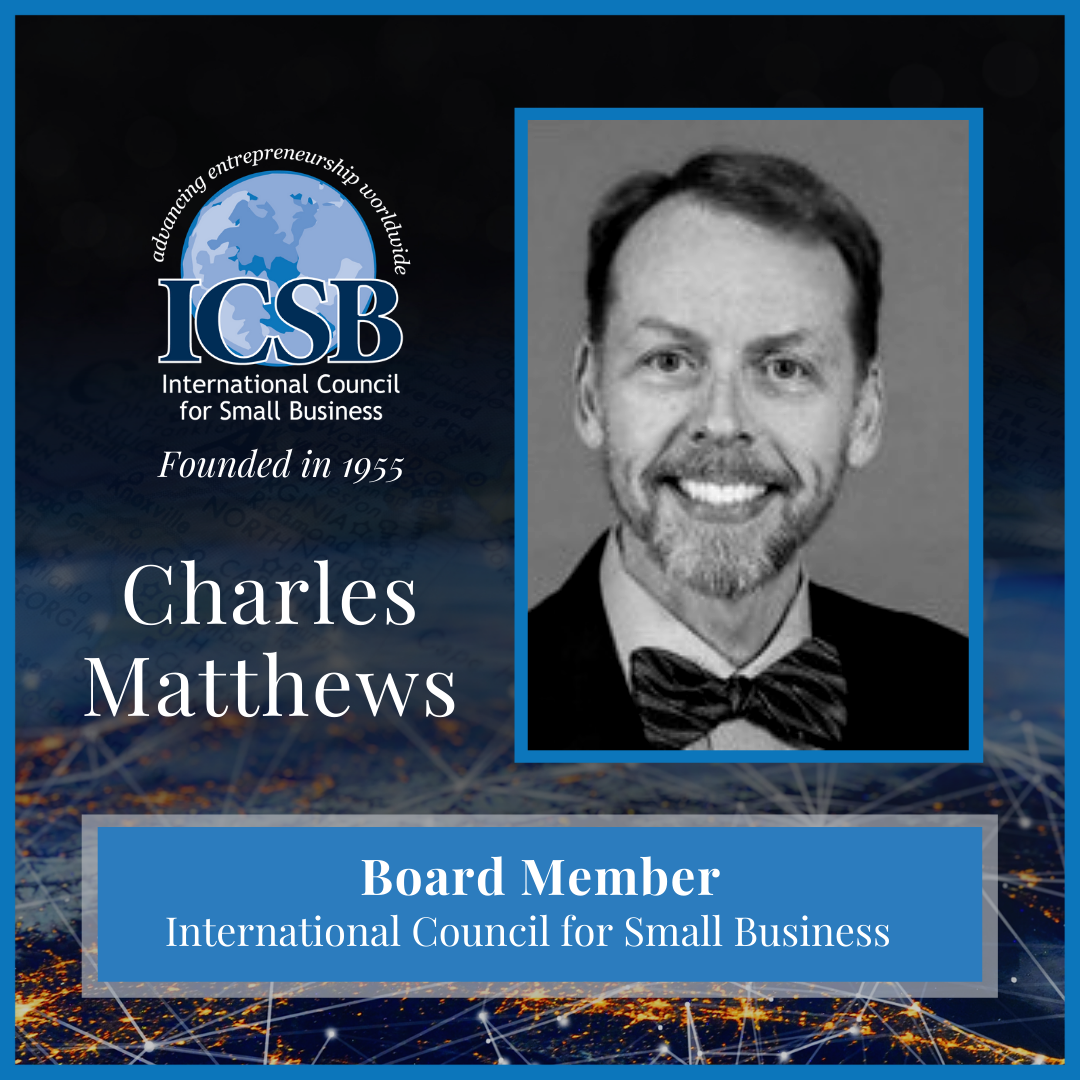
ICSB HQ Staff:





